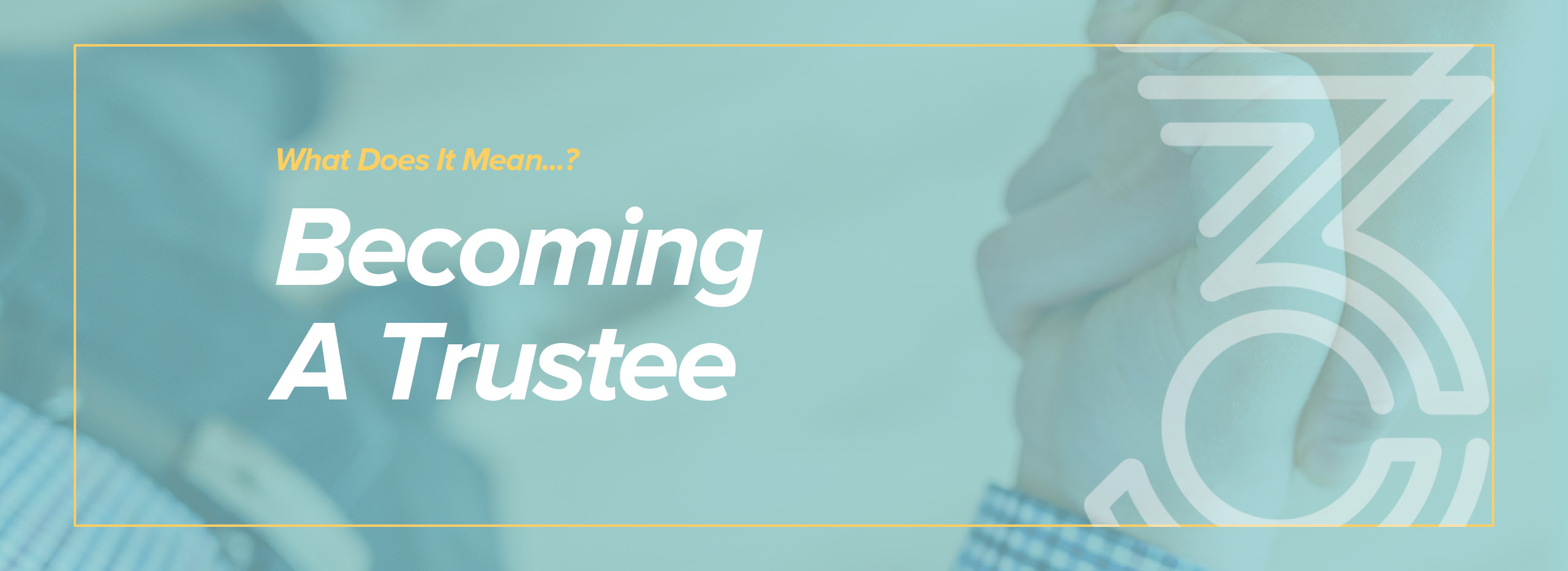“I’m considering being a trustee…” What does this actually mean?!
As a financial adviser, I commonly advise clients on trust assets. Trust assets? Assets (usually cash in my remit) which someone has gifted away, not as an outright gift to another person- but into a trust.
In my experience, the reasons for gifting into trust vary widely but often, there is a common thread between these reasons, which in itself can be used to define the rationale in a nutshell: Control. To make a gift into trust, without losing control of the asset. In essence, you are able to keep hold of those purse strings, after making the gift, in accordance with the trust deed. This could be for many reasons; to ensure the money isn’t obtainable by unwanted parties, to look after it until a beneficiary is able to receive the money, or perhaps one of a long list of other valid reasons that people- who want to gift money for whatever reason- wish to retain control.
So, who actually has control? This is where the trustees come in.
The trustees are the legal owners of the trust. These are the people to whom I provide the advice. They may include the settlor (the person who made the gift initially) but this doesn’t have to be the case. One of the common conversations us financial advisers have is that of establishing suitable trustees. It’s vitally important that all trustees are suited to the task both from a theoretical point of view but also a practical perspective. For example, if a trustee is willing and able to make sensible decisions on the trust assets that’s great, but if they are rarely in the UK or don’t keep in contact with the beneficiaries, this might not be practical.
Being a trustee can sound daunting…. and to be frank, quite rightly so! It’s a huge responsibility. Potentially with repercussions if it’s not done properly. However, when breaking it down, we can uncover some of the basic responsibilities to help establish what it involves.
What do I need to do?
Trustees need to act prudently, for the benefit of the beneficiaries, in line with the terms of the trust deed. This can be further broken down to:
- Managing trust assets. This can be outsourced to suitable professionals, such as financial advisers
- Seeking advice where necessary. See above!
- Investing sensibly and cautiously, in a way which seeks to minimise risk and maintain growth potential
- Making distributions as required
- Keeping records, making registrations and declaring tax as necessary
- But above all, acting in accordance with the trust deed.
This is just my whistle-stop tour of what trusteeship may involve, but the actual responsibilities and duties can go beyond this. Which brings about a commonly asked question; Is this too much for me to take on?
Many lay trustees aren’t confident that they can take on the role of the trustee without some degree of support. This support may come from a financial adviser, but more commonly, lay trustees may choose to add a professional trustee to their arrangement to ensure matters are dealt with appropriately and reporting takes place as required. This will come with a cost, for engaging the time and expertise of a professional. However, it can provide lay trustees with great peace of mind in knowing that the trust assets are in safe, professional hands.
As a financial adviser, I provide investment advice and financial planning advice in regards to the trust assets, but the instructions always come from the trustees. Not a role to be underestimated!
If you wish to discuss the contents of this blog post please contact corryn.wild@three-counties.co.uk or telephone the office on 0191 230 3034.
Disclaimer: The above content does not constitute financial advice. Your circumstances may differ from those outlined and you should seek advice which is relevant to your own situation.


